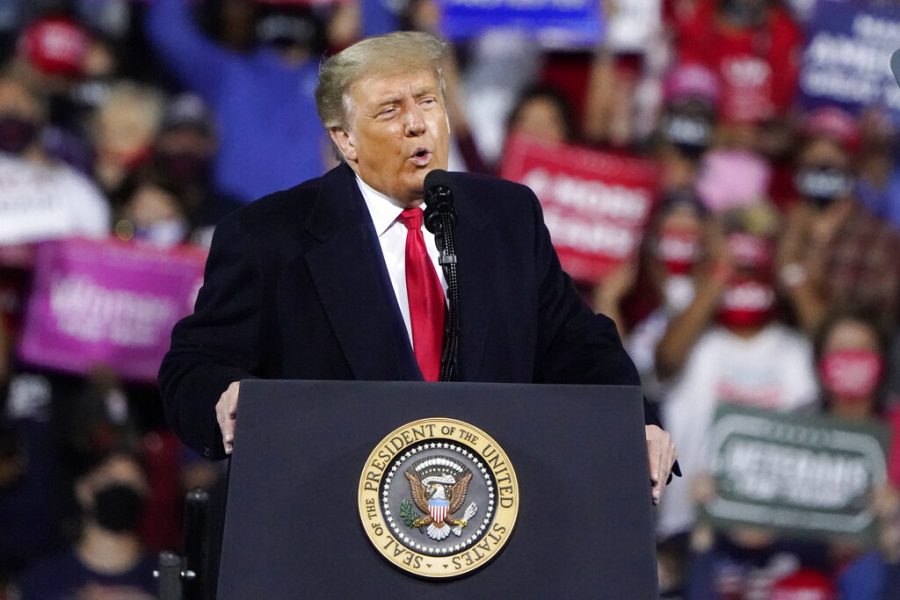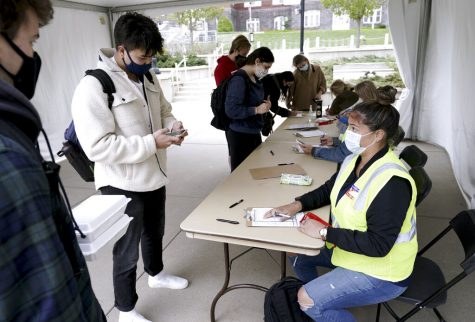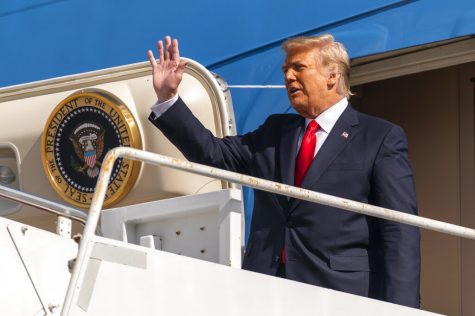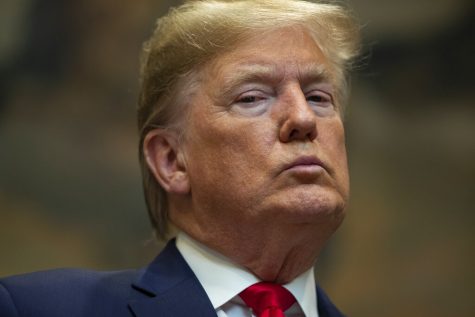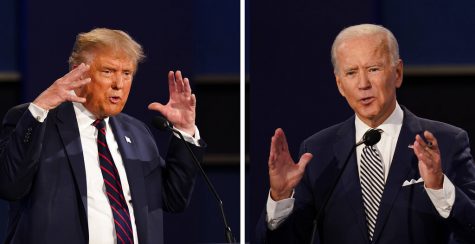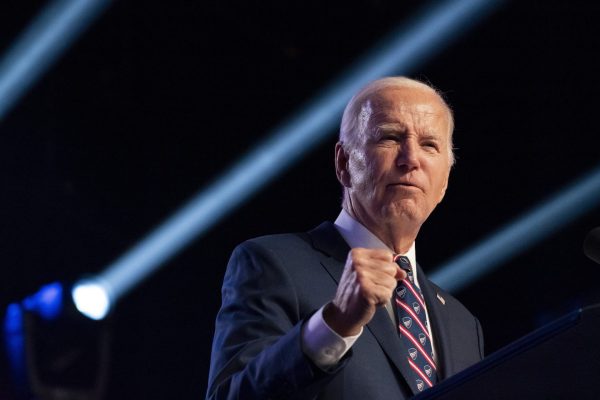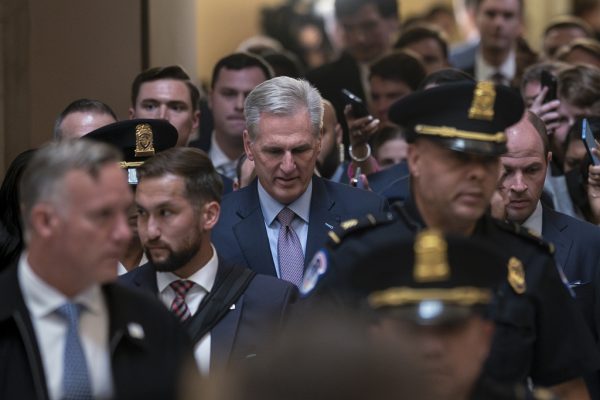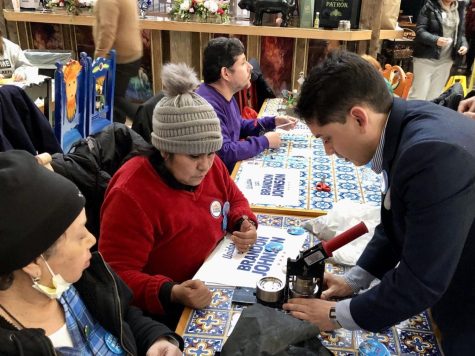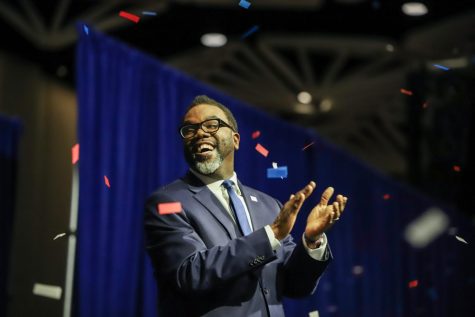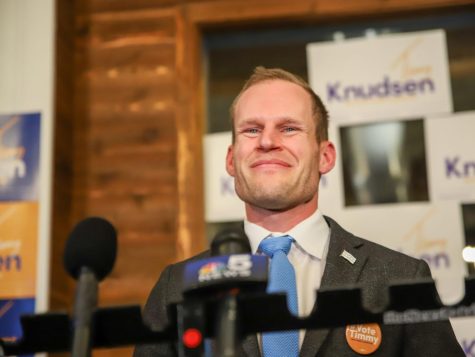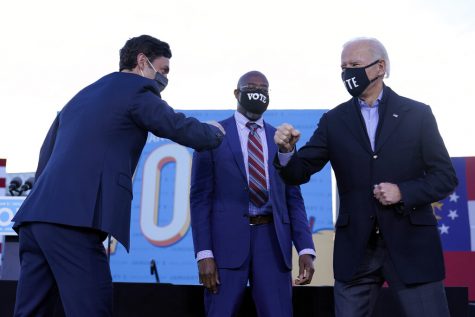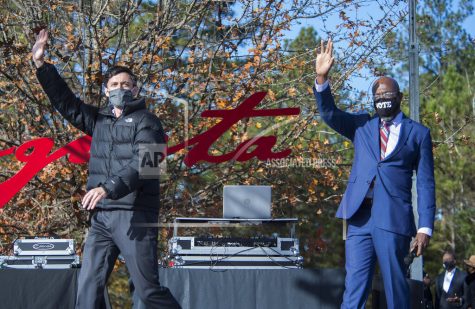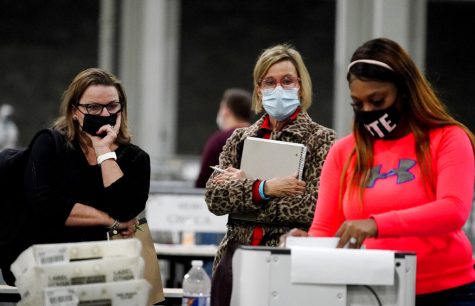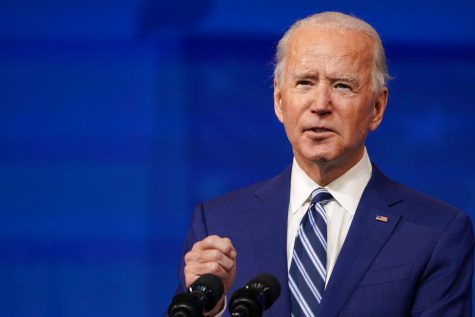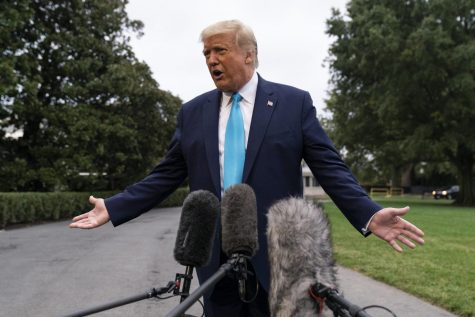Trump uses “law and order” campaign to take back midwest votes
President Donald Trump speaks at a campaign rally, Saturday, Sept. 19, 2020 at the Fayetteville Regional Airport in Fayetteville, N.C. (AP Photo/Chris Carlson)
In an attempt to take back key votes that have dwindled in recent months, President Donald Trump has attempted to paint “Biden’s America” as a country devoid of any law and order — using videos from protests under his own administration.
“Joe Biden would double down on the very policies that are leading to violence in American cities,” Vice President Mike Pence said during his speech at the RNC. “The hard truth is you will not be safe in Joe Biden’s America.”
Ben Epstein, associate professor in DePaul’s political science department, said Trump is aiming to lock in his previous white midwestern voters through several campaigns, but with an emphasis on law and order in response to civil unrest that has gripped the nation since George Floyd was killed by police in May.
His focus on law and order is a continuation of his role as demagogue,” Epstein said. “If he can make people afraid enough, and suggest who they should be afraid of, and that he is the one to keep them safe, then he might get them to stay in his camp. It’s a campaign of fear, misdirection, and undermining the institutions and trust in the democratic process. It worked for him just barely in 2016. His money has changed but his basic plan hasn’t.”
Craig Sautter, adjunct faculty in the School of Continuing and Professional Studies, specializes in U.S. presidential politics. He said Trump is “trying to take a page” out of former president Richard Nixon’s “Law and Order” campaign, which responded to the 1968 riots following Martin Luther King’s death, and at the Chicago Democratic National Convention.
“Nixon did win, but in one of the closest elections in U.S. history,” he said. “Trump has to win or lose based on his four-year record. The ‘Law and Order’ appeal is limited. He needs to show the positive vision for the future.”
Polling in Michigan, Wisconsin and Ohio — key states in Trump’s 2016 win — shows the president is trailing behind Democratic opponent Biden.
Sautter said the Midwest has primarily voted Republican in the past — with the exception of President Franklin D. Roosevelt during the Great Depression — until recently with former presidents Bill Clinton and Barack Obama.
“With [the] exception of Minnesota, Wisconsin and Illinois, the Midwest went Republican again for Presidents George W. Bush and Donald Trump,” Sautter said. “So the Midwest is currently split, and votes Democrat or Republican these days, not based on party, but based on the appeal of the presidential candidate. That is certain to be the case this year.”
Political science professor Wayne Steger said most voters are “unchanged” in the face of the emphasis on law and order.
“People leaning Democratic don’t like his approach,” Steger said. “Republicans and leaning Republicans like his approach. The key question will be independent voters.”
Trump’s visit to Kenosha, Wis. following the police shooting of Jacob Blake — in which the president defended law enforcement and didn’t mention Blake’s name — emphasized this strategy.
“Like so much of what he does, it endeared his supporters and enraged his opponents,” Epstein said. “For someone who won the presidency with under 50% of the vote, and someone who has never been popular with over 50% of the public, it seems like a bold and potentially shortsighted strategy to try to not win over new voters, at least not mainly, and to try to just motivate those that already supported him.”
Sautter said there are “still two months of surprises” as the election quickly approaches.
“The impact of Covid-19 and the economic turmoil it has caused may be Trump’s undoing,” Sautter said. “And the unknown influence of Vote by Mail and its potential for fraud make the outcome of the election even more unpredictable. The only thing that is certain is that almost every close state race will be involved in lawsuits and recounts, and that the outcome of the election may not be known for weeks, even months.”


